I thought a lot about what would be an interesting topic for this article. I´m fairly new to the game, so what could I possibly have to say about anything? Then my mentor suggested that since I originally come from a different field, and the transition period from starting my first serious art training to becoming a professional was relatively short, it might be worth talking about mindsets that helped me along the way. I thought that was a great idea.
I’ll tell you a little bit about my background first. I loved art and painting from a very early age and I took classes in the local art school for many years but with cautious advice from my art teachers and basically no information about career options in artistic field I later went on to study English in high school and Psychology in university. I still think that was a good and pragmatic decision, and both fields of study proved to be more than helpful in my later pursuit. While studying I realized I really didn’t want to be a psychologist, so I slowly learned to work in Photoshop, I patched together a couple paintings and got a part time job at a local game studio where my job was to paint over 3D renders. After finishing my Masters Degree the studio went out of business but I was already in love with the idea of an artistic career…so I started freelancing. Oh, the naivety. With being mostly self-taught and having mediocre, all-over-the-place portfolio, it took one year of different small art jobs and constant financial worry before I admitted to myself, with a lot of pain, that I just wasn’t good enough to keep this career going. I needed to learn to paint.
Two years later I got my first Magic the Gathering assignment which I considered to be a turning point in my life as a professional artist.
Since all this happened not so long ago, I decided to observe my old self and figure out what went on in my head in that time. I read all the emails I sent to teachers and art directors and I revisited old paintings from the mentorship programs I’ve done over the period. I almost forgot I ever painted some of them. Memories of frustration and desperate need to paint well but not yet being able to started to come back to me and, with relief, I realized that I don´t feel that way when I paint anymore. So from all that journeying into the past, I managed to distill 3 most important mindsets, that I believe helped me “break in”.
Have a mentor. Always.
After I gathered the courage to expose my fragile ego to the best of the best, I turned to the online world of serious art training. Logically I understood the necessity of being in contact with competent professionals and teachers, or in general, artists who were way better and more experienced than me, but emotionally it was pretty scary. But I didn’t have time to ponder, I was in need of serious help or I would have to go get some HR job. I needed someone to guide me and help me do things I wasn’t yet able to do by myself.
With modern options of online education, and with artistic community being unbelievably generous and kind, it is fairly easy to reach out to artists one aspires to and ask for a critique and advice, or to go see them at a conference or workshop. If you´re lucky, they might offer mentoring, or teach at online art school. This experience quickly became extremely motivating instead of intimidating. I’ve had countless wonderful talks with professional artists and art directors who were so supportive in their emails or in person, either telling me exactly what I needed to do next with my work, or refereeing me to someone else who could help. I hunted down artists to have those 5 minutes with them and I put what I learned from them into the work, so I could later come back and show the proof that I listened. People are pretty excited and likely to further help you if you listen. Each portfolio review and conversation left me with new information, new perspective, and an idea of what to work on next. All the mental fog and chaos also continued to clear out when I enrolled in mentorship programs. Weekly assignments brought external structure into my process, I got familiar with how the industry works and very importantly, I was having regular conversations with professionals about the direction I wanted to go which helped me set goals and make plans on how to achieve them. Along with the support of the art community and other students, all of this made it a lot easier to manage negative emotions that naturally accompany the pursuit of something difficult.
Quality of the work is all that matters
My early experiences with doing all kinds of mediocre art jobs convinced me that the only thing that could ever guarantee any kind of security in the artistic profession was the quality of my work. I figured that even if I had the best strategy with social media, I was able to pull off 10 pieces a week and I met all the art director in person, but had mediocre paintings in my portfolio, it would all lead nowhere. That realization allowed me to prioritize just one problem, instead of dealing with a bunch of intertwined problems. The priority was to get my paintings where they needed to be, in my own definition of quality.
In practice this meant letting the paintings take as much time as needed, getting rid of false assumption like “reference is cheating” and reworking almost every sketch multiple times after my teacher´s feedback. I often compared WIPs to works of artists I admired and forced myself to see the differences in quality. It was valuable information. My time was precious, so I tried to maximize the potential of each work to get me as close to my goals a possible, and that meant approaching every piece as my next masterpiece. I believed that if I could show a proof that I could actually do the thing and that I could do it well, people would notice and opportunities would start to present themselves.
Like the things you like
There was one painting I did early on that defined the way I make art. I got the idea while skiing in the snowy mountains. At the time I was quite paralyzed by choices and decisions I thought I had to make, like a proper neurotic beginner. Concept art or illustration? Is using reference cheating? What should I paint?
There´s not much to do while you´re being pulled by the lift to the top, so I just gazed into the forest occupied by these thoughts. I remember suddenly being so dazzled by the white snow and orange leaves, a young redhead woman started appearing before my eyes running through the trees and then falling. Damn, she´s bleeding, the hunters got her! It was my imagination intertwined with the reality I was experiencing, one fed the other, and I got so excited. I hurried home and started putting the idea on the canvas. I didn’t have time to think about whether I should or shouldn’t use reference, the piece just needed to be realistic, like my vision. Was the scene going to be appealing to the the clients I was aiming for at the time? Who cares, I loved it.
I even found an old screenshot of the work in progress named “happy.jpg”. Working on that painting made me happy, so happy that I captured the moment so I could remember it.
I think that was when I realized I was a fantasy illustrator and also that I just loved visual drama. This ended up to be my first painting that got recognized, it even got me an IMC scholarship here on Muddy Colors. All of that made it super obvious that when I felt excited about my own work, it made me try so much harder and do everything necessary to communicate the vision. Technique and fundamentals started to serve this single goal of showing, to the best of my abilities, what was in my head.
I believe you don´t consciously come up with your values and decide what kind of artist you want to be. You discover it. You closely observe your feelings and behaviors, and you allow yourself to find out. Since this realization I keep surrounding myself with visuals, music, nature and everything I always adored and I bring the inspiration into the actual art making. What a cool lifestyle that is. I used to think that professional artist should be able to paint anything, preferably in any style, but I don´t think that way anymore. I´m too busy painting what I want, exactly the way I want and making it awesome.
So I think this is it, these are 3 most important mindsets that helped me back then and are still helping me now. Maybe they´ll help someone else too.



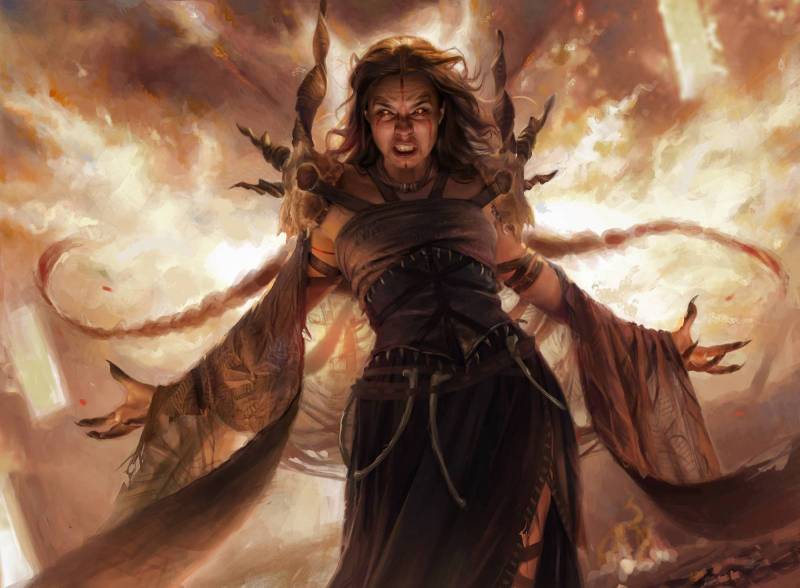



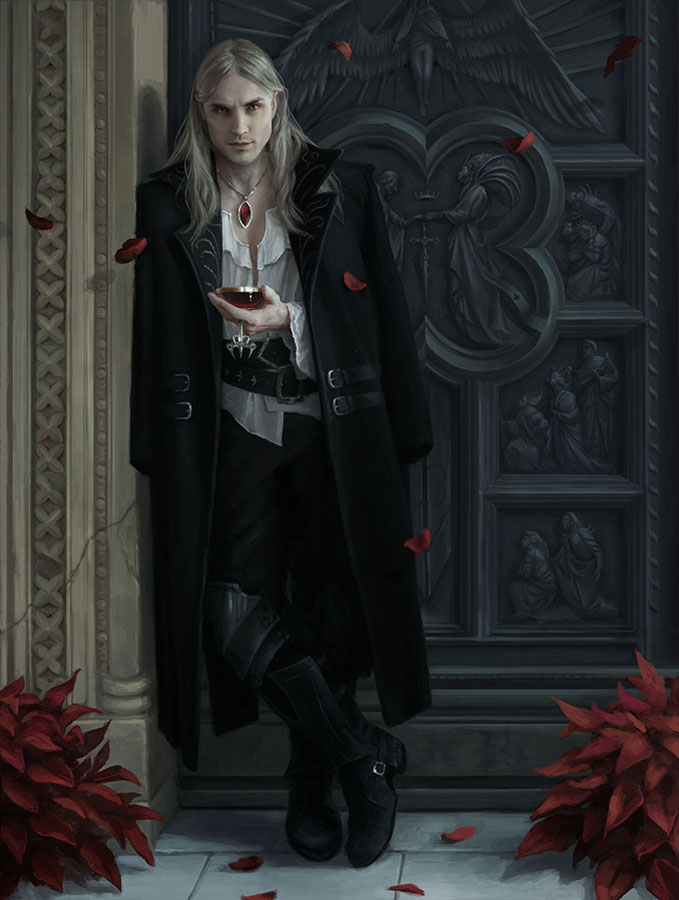

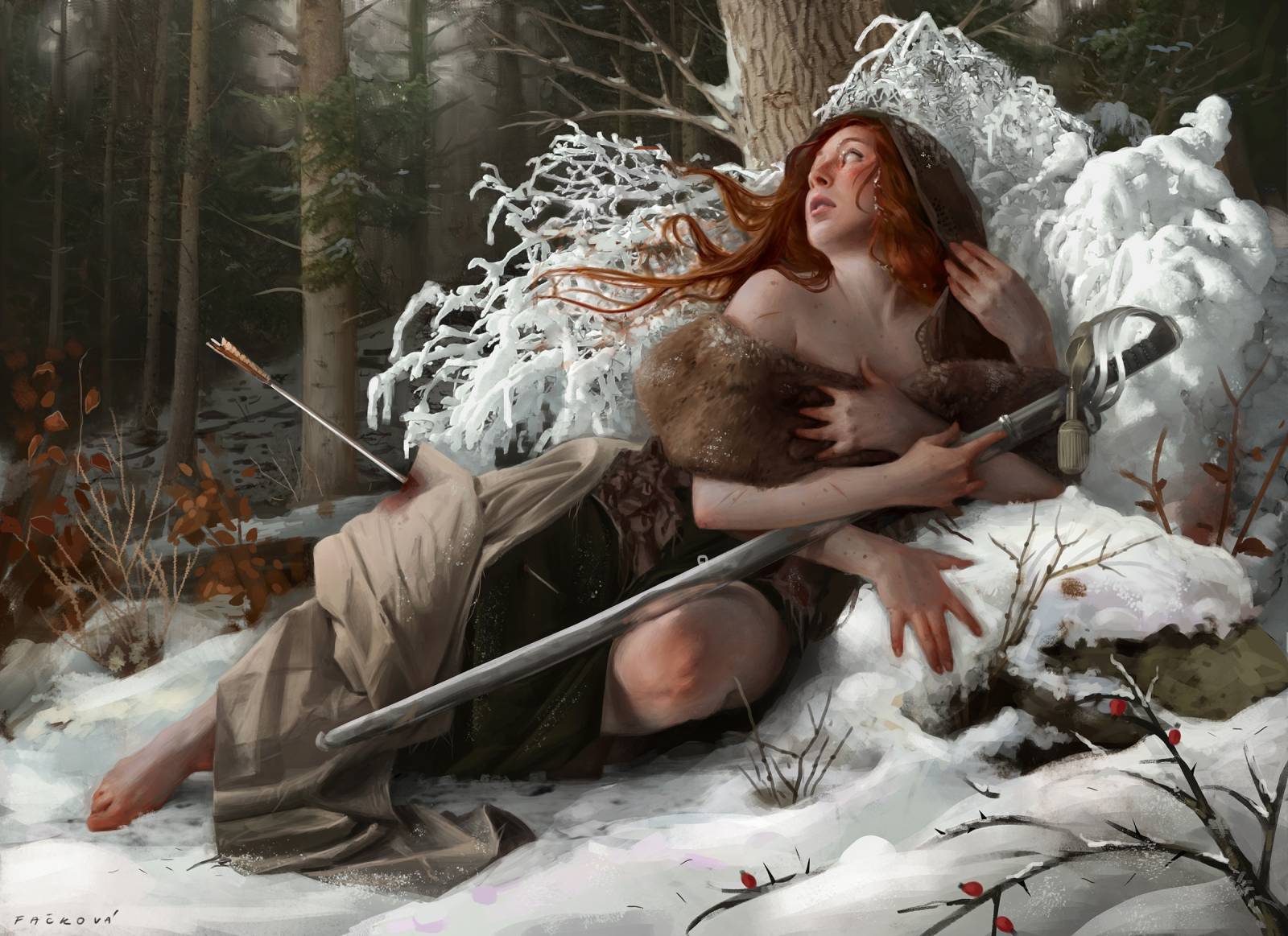
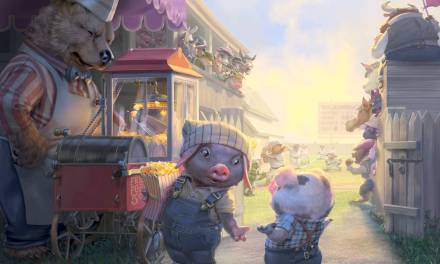
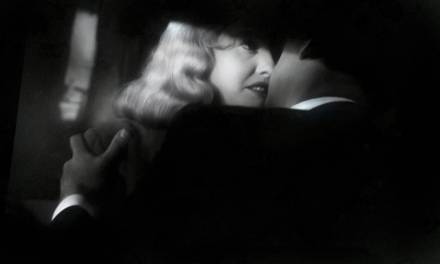
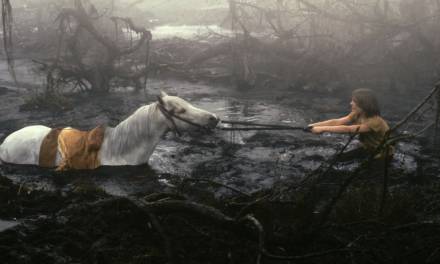
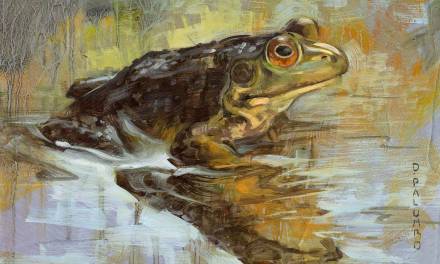
Your article is timely and valuable. As I approach my nearly 300th year (or so it sometimes seems) and having dealt with tough challenges, I am reworking and restarting my art career. I’ve done okay in the past, but these insights into your own growth encouraged me. It inspired hope, and reassured me yet again that I am neither past my time nor an aberration, and helped me visualize a path. “quality of the work is all that matters.” “Like the things you like.” And one of my own: “Evaluate your doubts, take strength from them and move forward.” God bless you in your upward journey.
I´m super happy to hear that 🙂 Rock on!
Hi Martina! Yes – thank you. This is really helpful to me! I’ve slowed down my art production as I try to improve the quality of my work. Amazingly, spending more time on something and a willingness to redo finished elements of a painting actually pays off! Slowly, I’m finding my way. My mentors are you and everyone else in the MC, IX, and IMC community. Hope to see you back in the states again at some point!
Wonderful Michael! And yes, I´m sure when things in the world settle down a bit you will:)
This was a great article and I’m really glad you wrote it. I’m not sure if my own struggles are quite the same but I do find myself at a point where I’m trying to figure some things out, a path forward so to speak. I’ve spent the last several years just rediscovering my love of art and creativity after being in a major life rut for a very long time. Art has helped pull me out and now I’ve reached a point where I know regardless of it being a profession or not I will continue to create art and truly enjoy it. But I also feel like I may need some help moving forward in both my artistic skills and mindset toward working on and creating projects and illustrations. There is so much online to look through for that kind of help I’m trying to sort through it all and find what I feel is right for me.
Once again though, thanks for the article, I’ll be thinking about it now throughout the day I’m sure haha. Cheers!
The most important thing when feeling paralyzed by choices is to just choose something. As soon as you start moving, the path will clear out 🙂
Thanks Martina, making a choice is one of my weaknesses, my mind gets so caught up in the “What If’s” and instead of making a choice I start focusing on what if I make the wrong choice. Choice Paralysis sucks and I need to battle my way through that no question.
Be well, and by the way, beautiful work, I took some time to look through your art and there are some really stunning pieces in there.
This is a great article thats been on my mind a lot . Its interesting how many times I’ve seen people talk about how important a mentor is. I really envy those who find them. I’m mostly self guided as well and for me finding mentors has been extremely difficult. A vast majority of artists I look up to can’t explain their process. (Often their self taught too and learned via trial and error so technically their just as lost as I am.) I’d say over half don’t have any way to contact them at all, 20-30% just never reply. The advice I get is either vague (sometimes just a sentence or 2) or over my head and often I only get 1 response. So asking people who do the work I want is practically impossible. I know there are many online teaching options but as someone who’s taken over a handful of them, they still have many flaws and I really wish there were more short 1 on 1 options. But mainly the teachers I see either don’t do the art I want (or worse try to steer me away from the art I like) so their advice is often detrimental or they are in that field but often expect you to know a vast amount of sub skills that aren’t clear, so I learn practically nothing. I know the art I love, I know what I want to do, but I have no idea how to do that myself, the road to get there is not clear at all and I truly don’t know how or who to ask for help. I’d really love to hear, do you had advice on how you got a hold of mentors that made the biggest positive impact for you?
Painting and teaching are 2 separate skills and I definitely agree that not all artists are proficient in both. But there are many who are! Try to investigate who taught artists you admire, if they mention someone specific. Also if the information you get in mentorship programs is too complicated to understand, try to find a course that´s less advanced. Other than that I´d have to know your field of interest to suggest a specific direction to look.
Thank you for the reply! I’m really into Anthro/ scalie characters and dragons but people I look up to either claim to never have teachers, ( some telling me if I can’t learn it myself then I’m just lazy.) say they just copied other artists (which I can’t say I learned much from.) or learned from books and youtube teachers that, after seeing myself, I have no idea how they did. I just wish both basic and advanced classes would specify what is and isn’t going to be taught in the course. I’ve seen basic classes gloss over going into detail about fundamentals to make it more palatable for beginners, or have a severe learning curve and more advanced classes skip certain basics thinking “you probably know that already”. Theres many advanced classes that require skills that fundamental courses don’t cover and for me “advanced” is way too vague a term to know if your ready or not. I see this giant gap from the art I love to what I make and I just can’t help but think its from having no one in my current middle stage to tell me what I’m missing. Everything I want to study from my favorite artists to do that work, I can’t find any resources that give actionable steps to actually learn those skills.
Thank you so much Martina for writing this! I recently graduated from an animation program but by the end I realized that I like digital illustration more. This put me in a similar position of how you were back then, I do not have a portfolio to take on this field yet and feel like I have to improve fast which gives me a lot of stress. At one point it became harder to sit down and draw because my previous mindset is very damaging, it almost sucked my passion and inspiration out, honestly I somewhat still feel like that but I’m slowly trying to recover from it. I will explore more and find the thing about digital painting that makes it fun for me. One other thing is, I felt alone and lost in my pursuit to become a professional illustrator, but now by reading this, I realize that I didn’t try to surround myself with or reach out to other artists. I think I should be a part of some online communities and try contacting professionals for advise when I’m stuck at certain things. I will do my best even if I don’t find a job this year, eventually if I keep trying, I hope that one day I’ll become a professional too.
Excellent article. Thank you!
Thank you for this article! I also got my start in Psychology and got a degree in that before realizing that I want to be an illustrator instead 🙂 I’m amazed by how quickly your skill and technique seemed to develop! It’s been taking me a long time, but I keep reminding myself that “it’s a marathon, not a sprint.” A lot of difficulty deciding and analysis paralysis along the way for me, too, especially since I have such a wide appreciation for different styles and themes! I’ve been slowly developing my skill via online classes; every so often I hit a technical roadblock and I realize I need to improve something specific, like the gesture of my figures, or my understanding of perspective, etc… and so then I take a side trip back into foundations to improve those things. Eventually it will all hopefully result in more consistently good finished work 🙂
Nice one. I saw some of your MTG cards a week ago, being excited that you are from Slovakia. Now I know more about your journey and enjoy your book cover art. Respect!
tanks for sharing it with us.
Thanks for sharing your insights, and congrats on all of your recent successes! Very well deserved